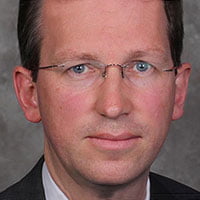UK gov’t approves $78m kids fund
The UK government has revealed more details of a controversial £60m (US$78m) fund for children’s programming that UK pubcaster the BBC has argued could become a subsidy for services such as Netflix and Amazon.

Jeremy Wright
The scheme was unveiled in January by then UK culture secretary Karen Bradley, who said the move would support the production of children’s TV in the country.
The Young Audiences Content Fund will be administered by the British Film Institute and will run for three years from 2019. It will be available for content broadcast on commercial public service broadcasters (PSBs) ITV, Channel 4 and Channel 5, as well as shows on other channels and OTT services.
Final details of the scheme are yet to be confirmed but content creators will be able to receive up to half of the production and distribution costs of original TV shows using the fund, which was initially proposed in a white paper in May 2016.
The scheme “aims to halt the decline of UK-produced children’s content and reverse the growing trend of airing repeats” according to the announcement from current culture secretary Jeremy Wright. Investment in kids’ TV by PSBs has fallen by 40% since 2006, according to the government.
Additional features of the fund include a boost to indigenous UK languages programming, with an aim to invest 5% of the total fund in this.

Greg Childs
However, the BBC has criticised the move, which looks likely to be part-funded by money originally taken from the broadcaster to support the roll-out of rural broadband.
“We’re in favour of a wide variety of children’s programming being made in the UK,” a spokesman said.
“However, we worry that this scheme will use licence fee payers’ money ultimately to subsidise big global media companies such as Netflix and Amazon, without addressing issues parents care about, like online safety.”
Around £3m will also be put aside to create an Audio Content Fund designed to encourage innovation in commercial radio, a move the BBC has also criticised.
“Commercial radio has never been healthier and is set to benefit from further deregulation. It’s not clear that the case for public subsidy, rather than market solutions, has been made – or indeed, properly debated.
“There is little evidence schemes such as this are successful elsewhere and whatever happens, money should never be taken from the BBC’s budget to fund the scheme on an ongoing basis,” the pubcaster added.
Former UK culture minister Ed Vaizey also criticised the fund, adding that such programmes have “not been successful elsewhere and I have severe doubts that this £60m will end up being money well spent.”
He added: “Ironically, the money could even end up providing subsidies to Netflix and Amazon, who certainly don’t need it.”
Those working in kids’ TV have welcomed the scheme, however, with the Children’s Media Foundation (CMF) saying the move would “begin to redress the decline in the production of original public service content for children and young people in the UK for which we and others have campaigned for many years.”
Anna Home, chair of the CMF, added: “What we need from the fund is a rich mix of content which mirrors the programming lost over the past 10 years.
“Experimentation should go hand-in-hand with tried-and-tested genres such as drama, which will attract a broad audience. New talent should be given opportunities while trusted practitioners should also be providing content, reflecting the hugely respected skills in children’s production in the UK.”
Greg Childs, CMF’s director, said funding the development arm of the fund “makes sense as it allows producers to build content propositions that will be more attractive to broadcasters who can then confidently inject the match-funding needed to complete the project. It’s also a great opportunity to stimulate risk-taking and innovation.”
However, the CMF admitted it “would have hoped that additional funding could have been found to support the new Audio Content Fund, but in the absence of that we believe the fund should focus on young people’s content as a priority.”
“We look forward to the opportunity to work with the BFI on fine-tuning the Fund’s criteria and operational planning in the months prior to its launch in early 2019,” it said.
Margot James, the government’s digital and creative industries minister, said the “innovative project” would be “an instrumental part of our support for the UK’s vibrant media sector and will help it continue to go from strength to strength.”
UK production trade body Pact also welcomed the fund, arguing it “will help bring new voices into the industry and people’s lives.”
In 2015, figures such as Teletubbies creator Anne Wood and former ITV programming boss Nigel Pickard signed a letter to the government in 2015written by Oli Hyatt, the then-chairman of Animation UK, calling for a contestable fund that would not be drawn from the BBC Children’s budget.














.jpg)




























